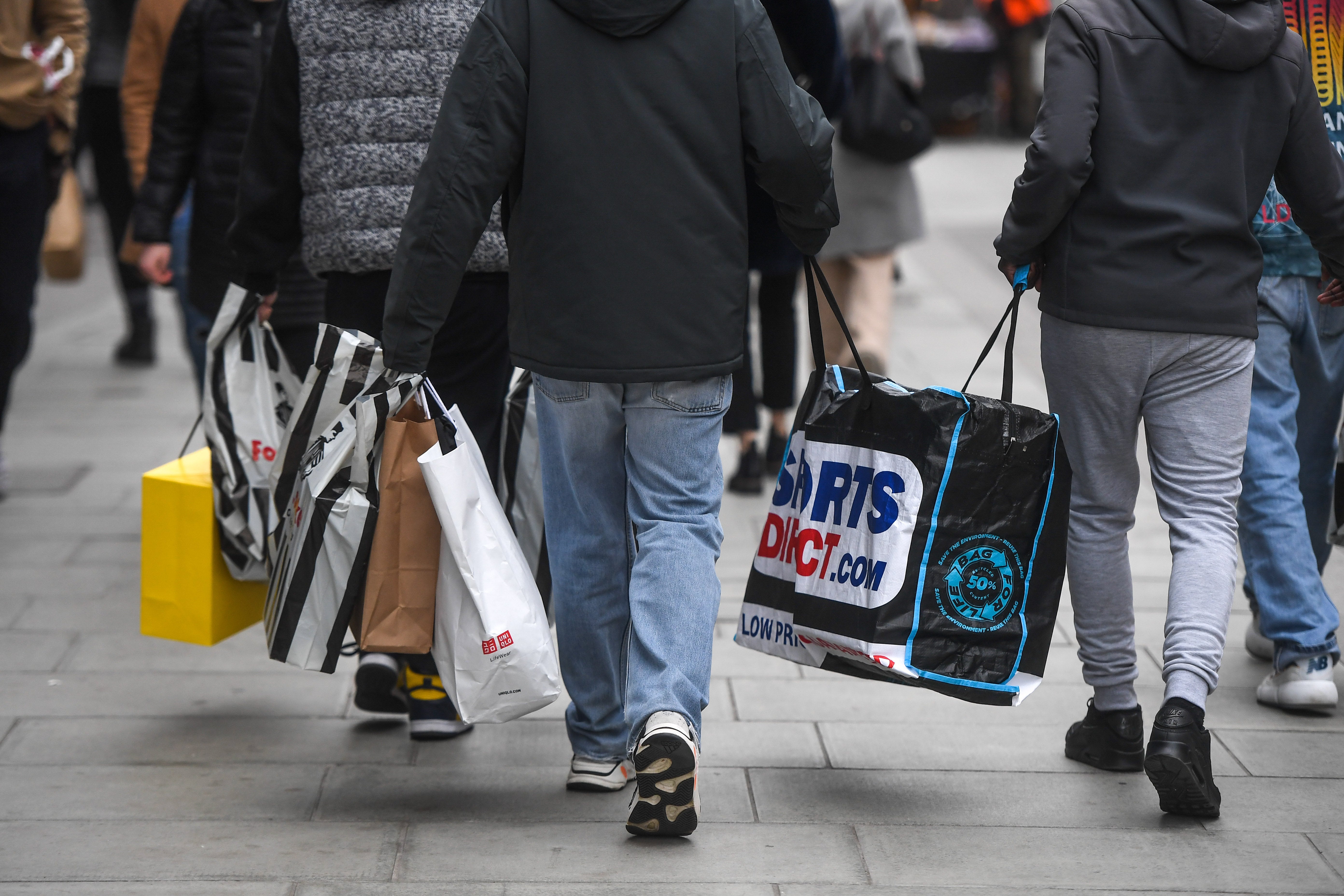Plastic bag charge: Does it make a difference, and how does England compare?
Environment campaigners welcome increase but raise concerns about over-reliance on ‘bags for life’ and paper carrier bags, as Samuel Osborne reports


By doubling the charge for plastic bags from 5p to 10p and extending it to all businesses across England, the government hopes to reduce plastic waste.
Under the 5p levy introduced in England in 2015, only businesses with 250 employees or more had to charge per bag, while smaller shops could choose to do so voluntarily.
Now all stores, including corner shops, will have to apply the charge in a move the Department for Environment, Food and Rural Affairs (Defra) expects will decrease the use of single-use carrier bags by 70-80 per cent in small and medium-sized businesses.
The previous 5p charge was highly effective in reducing plastic use, with the most recent figures showing the number of single-use bags distributed by large supermarkets had fallen by more than 95 per cent.
While the average person in England brought around 140 single-use plastic bags in 2014, that figure has now dropped to just four a year.
The levy has proven popular too, with a survey for waste and resources body Wrap conducted in December finding 73 per cent of consumers supported it.
However, the same poll found 26 per cent of consumers still bought single-use bags at the till when shopping for food.
There is also an economic incentive to the charge, which is expected to boost the UK economy by almost £300m over the next 10 years.
So far, it has helped raise almost £180m for good causes. Last year, around 30 per cent of the £9.2m reported went to charity, volunteering, environment and health sectors, while 49 per cent went to causes chosen by customers or staff and 21 per cent went to a combination of good causes.
Environment campaigners have welcomed the increase, though some raised concerns about an over-reliance on “bags for life” and paper carrier bags.
Nina Schrank, senior campaigner at Greenpeace, said: "There's an urgent need to get on top of our plastic pollution problem.
“The root of the issue is overproduction; we're simply making far too much throwaway plastic. So making carrier bags more expensive and reducing their sales is a good thing, but a phase out of all single-use bags and bags for life would be even better."
Friends of the Earth plastics campaigner Camilla Zerr also called for new rules to stem the growing problem of “bags for life”. She said some retailers have reported substantial increases in sales of long-life bags, which contain more plastic.
She said: “It seems that many plastic ‘bags for life’ are being used just once, and not re-used for the bag’s lifetime, as is their purpose. So while the increased charge for single-use bags should see good results, it won’t fix bigger problems.
“That’s because plastic bags are a drop in a heavily polluted ocean.
“If ministers want to get to the root of this problem, they need to take a tougher stand against all single-use plastics and support re-use and refill. For too long, government has allowed a piecemeal approach which is why targets that are legally binding are now needed, and urgently. It’s these combined changes that will stop wasteful plastic in the first place.”
In this respect, England lags behind the rest of the UK, with Wales, Scotland and Northern Ireland’s carrier bag charge also applying to paper bags and other single-use materials as well as plastics.
Over 30 countries around the world have now banned plastic bags, with many introducing bans that reduce plastic bag production and pollution and also encourage people to reuse their own bags.
In Kenya, the government has claimed 80 per cent of the population no longer use plastic bags, while in France a new law means one in five supermarket shelves will need to be dedicated to refill stations, and Malaysia has set out a roadmap to attempt to reach “zero single-use plastics” by 2030.
However, there are some concerns about the new charge, with the TaxPayers’ Alliance (TPA) calculating that the increased rate will cost consumers £1.03bn over the next decade, due to hidden costs caused by the increased use of paper bags and VAT paid on the charge.
Danielle Boxall, media campaign manager at the TPA, said: “While the charge has helped cut down the use of carrier bags, it’s still shoppers paying the price.
“Moving on from plastic bags will bring many benefits, but politicians cannot pretend this hasn’t hiked the cost of living for hard-pressed households.
“The move to online shopping during the pandemic may do more for cutting carrier bag use than this new 10p charge.”
Join our commenting forum
Join thought-provoking conversations, follow other Independent readers and see their replies
Comments